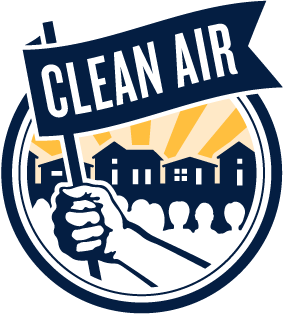Tonawanda Coke Shuts Down
On Friday, in U.S. District Court, it was revealed that Tonawanda Cokeplans to shut down its facilities as early as next Tuesday. Please join us for a press conference today, at 6pm, outside of the DEC Office at 270 Michigan Avenue in Buffalo.
The shutdown follows more than 10 years of community organizing; meetings, complaints, petitions, protests and press conferences. For members of Clean Air this has been a long time in the making.
Clean Air members living in neighborhoods adjacent to the company’s property have experienced the egregious behavior of Tonawanda Coke for over a decade.
Resident organizing resulted in a 2009 raid of the facility by 50 federal and state agents for ongoing environmental health violations. In 2013, a federal jury found the company and Mark Kamholz, environmental manager, guilty of 14 criminal charges, including violations of the federal Clean Air Act, and violations of the Resource Conservation and Recovery Act, in regard to the improper disposal of benzene, a known human carcinogen. Last month, the company was found guilty of violating their criminal probation.
Tonawanda Coke also has a long history of endangering workers at their plant, in at least one instance resulting in death. The U.S. Department of Labor’s Occupational Safety and Health Administration defines a serious violation as “when death or serious physical harm could result from hazards about which the employer knew or should have known. In 2014,OSHA cited the plant, and Kirchner LLC, which provides Tonawanda Coke temporary workers, with 17 serious violations, including putting employees at risk of falls, amputations and crushing injuries, according to the agency’s press release. Two years after OSHA cited the company with these violations, Richard Wade, a 60-year-old employee, died after he was pulled into the rotating shaft of a coal elevator. In a statement to the Buffalo News, OSHA stated the death could have been prevented if Tonawanda Coke followed federal standards.
Due to the long history of abuse, Clean Air is calling for the following to be ordered as the company shuts down:
The US District Court, the Environmental Protection Agency and the New York Department of Environmental Conservation require the company to include how the company will contain fugitive air emissions in case of further collapse in their emergency shutdown plan.
Clean Air is calling on state and federal agencies to require Tonawanda Coketo fund continued health monitoring of all employees, including temporary workers, to guard against any potential occupational health issues. In addition, we request that a portion of fines are used to help workers build skills for gainful employment elsewhere.
Clean Air is calling on Judge Skrently and the New York State Department of Conservation to require Tonawanda Coke and CEO Paul Saffrin commit and set aside funding for site remediation. Tonawanda Coke sits on river front property, in a neighborhood with families and children. Paul Saffrin should commit the appropriate funds to ensure site remediation to redevelop the site in a way that is consistent with the Tonawanda Tomorrow economic development plan.
While our membership breathes in relief today, it is not lost on us that this has been a long and tremendous fight. Despite over a decade of abuse,Tonawanda Coke has been allowed to continue operating, and Paul Saffrin and his investors have gotten rich off of destroying our bodies and our community.
Tonawanda Coke is not an isolated actor in the exploitation of communities, workers, and our environment, and until we shift the types of businesses we have in our economy, and ensure that people are put first over shareholders and CEO’s wealth, the Tonawanda Cokes of the world will continue to exist, and poor and working class people and people of color will continue to bear the burden, and have to clean up the mess.
What we need is an economy that centers poor and working-class people and people of color through equity and justice. What we need are state and federal agencies that are transparent and place communities at the forefront of decision making. What we need are elected officials that keep these agencies accountable to communities that elect them.
We believe that the world we want to see can only happen if we continue to organize, if we continue to build power, if we continue to shift our culture to one of equity and justice.
